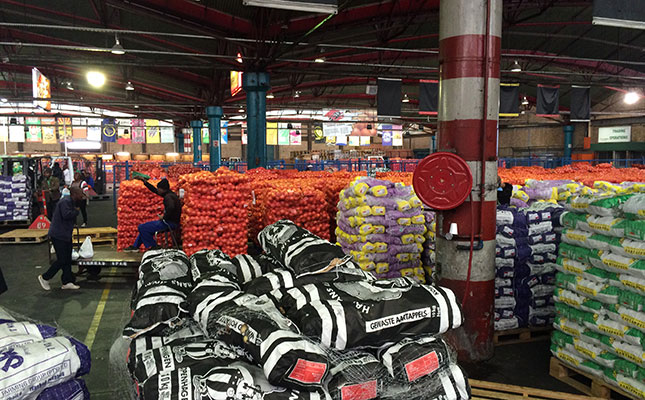
Photo: Denene Erasmus
Agricultural commodities have, for the most part, come off lightly amid worldwide supply chain disruptions as a result of the coronavirus disease (COVID-19) global pandemic.
Constrained demand for produce has, however, resulted in price decreases for especially those producers who normally service the hospitality industry.
READ Thousands of litres of milk dumped in US as pandemic deepens
Jaco Oosthuizen, CEO of the RSA Group, said that from a supply point of view, there had been no disruptions.
“But it is not business as usual. Certain product lines are under pressure, such as those that are heavily used by restaurants and hotels. Potatoes and lettuce are in oversupply since demand has tapered [off]. In the case of potatoes, many people bought large amounts before the lockdown and are only now starting to delve into those stocks.
“So, it will be a while before consumer demand starts [recovering]. But without fast food outlets buying large-sized potatoes in bulk, there is an oversupply of all kinds of sizes on the markets that consumers don’t normally buy. We expect that prices will therefore remain subdued for a while.
“On the other hand, people are sticking to the basics, so while the potato market will pick up, [produce such as] lettuce, herbs and pricier items such as avocados remain low on the priority list for shoppers.”
He noted, however, that he believed most farmers had enough of a buffer to weather the lower prices.
“But the marginal and speciality farmers producing organic produce, or [for] a specific farmers’ market or restaurant will have a big problem.”
READ Global COVID-19 lockdowns boost urban farming
Trevor Dukes, CEO of the Fruit Farm Group, said when the lockdown initially started, there were minimal disruptions in the flow of goods that could quickly be overcome.
“The collaboration between all our industry bodies, including Agri SA, the Fresh Produce Export Council and government, to share information and find solutions has been excellent.”
He said, in the short-term, the upside of COVID-19 was that consumers were looking for healthy produce, and so citrus, apples and pears benefitted.
“Especially in the European and US markets, produce with good value and a longer shelf life are doing well.”
While trade with China had not been completely restored, Dukes said goods were starting to flow, and all stakeholders were communicating openly about supply and demand.
To date, the South African dairy industry had not seen the mass disruptions similar to those experienced in the US and UK markets, where huge volumes of milk had to be dumped.
Dr Chris van Dijk, CEO of the Milk Producers’ Organisation, said that there had been no disruptions in the milk supply locally.
“There is enough fresh and UHT milk on the shelves, despite many consumers stockpiling UHT milk before the lockdown.
“The fact that people are not buying groceries everyday has [,however, affected] the sale of fresh milk, and there has been a switch to long-life milk. But this is a trend that we have seen over the last few years anyway. Cheese supply and demand is also stabilising after the restaurants closed and demand [fell] at the beginning of the lockdown.”
Van Dijk noted that since South Africa was going into winter, milk supply would be tapering off, which would reduce any similar problems to those experienced in the US.
“As it stands, we have enough milk to supply the local market without the need for any imports.”













